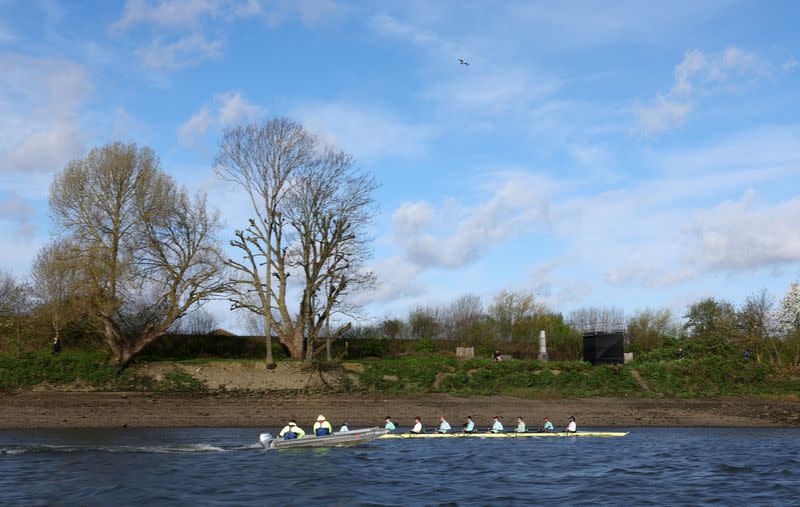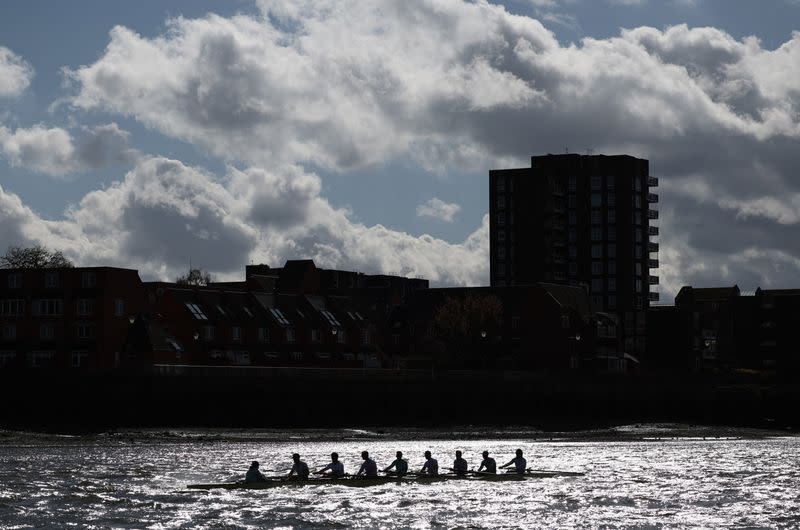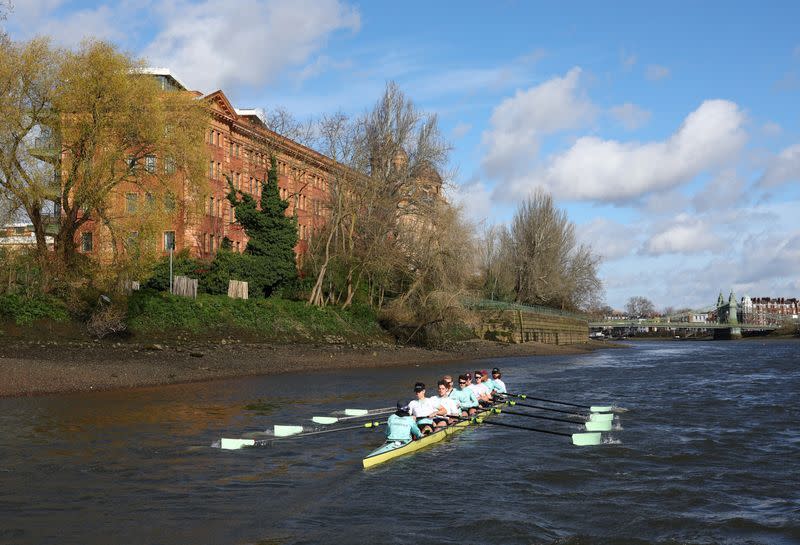Boat Race rowers told to avoid the water as UK sewage dumping surges
By Kate Holton
LONDON (Reuters) - Victorious rowers in Britain's University Boat Race have been warned not to jump into the River Thames this weekend due to alarming levels of E. coli bacteria, as official data showed sewage spills hit a record high in 2023.
Regular dumping of raw sewage in rivers and seas has sparked anger in Britain, with privatised water companies accused of failing to invest in infrastructure, meaning they are routinely dumping sewage in waterways.
Data released on Wednesday showed that raw sewage was discharged for more than 3.6 million hours in 2023, more than double the previous year. That has taken a toll on the River Thames which hosts the annual Boat Races between Oxford and Cambridge University students.
The winning crews have traditionally splashed water as they crossed the finish line and thrown the team's cox into the river. This year, organisers have urged greater caution after a campaign group found high levels of bacteria present.
River Action said testing showed E. coli levels up to 10 times higher than the level the country's Environment Agency considers to be "poor", the bottom of four categories it has for rating bathing water areas.
"We have put in place a series of precautionary measures this year to protect the health of our athletes," organisers said in a statement ahead of the famous race on Saturday.
The guidance includes covering up open wounds, regular hand-washing and a cleansing station at the finish area. It also highlights the risks of entering the water.
The fouling of Britain's waterways has become a huge area of contention ahead of an election expected this year, raising questions about the privatisation of core infrastructure, a focus on profit over investment and the role of regulators.
With wild water swimmers and surfers falling ill, and biodiversity taking a hit, the government has promised to clamp down on the dumping of sewage, which is only supposed to happen during exceptional rainfall to stop it backing up into homes.
The Environment Agency noted that 2023 had been the sixth wettest year since records began in 1836. Campaigners say water companies are discharging much more often than they should, including when there has been no rain.
British water companies last year pledged to invest 10 billion pounds ($12.6 billion) this decade to reduce waste outflows, but that sum is subject to agreement from the regulator Ofwat which is due to make a decision this year.
($1 = 0.7920 pounds)
(Additional reporting by Sarah Young, editing by Ed Osmond)





